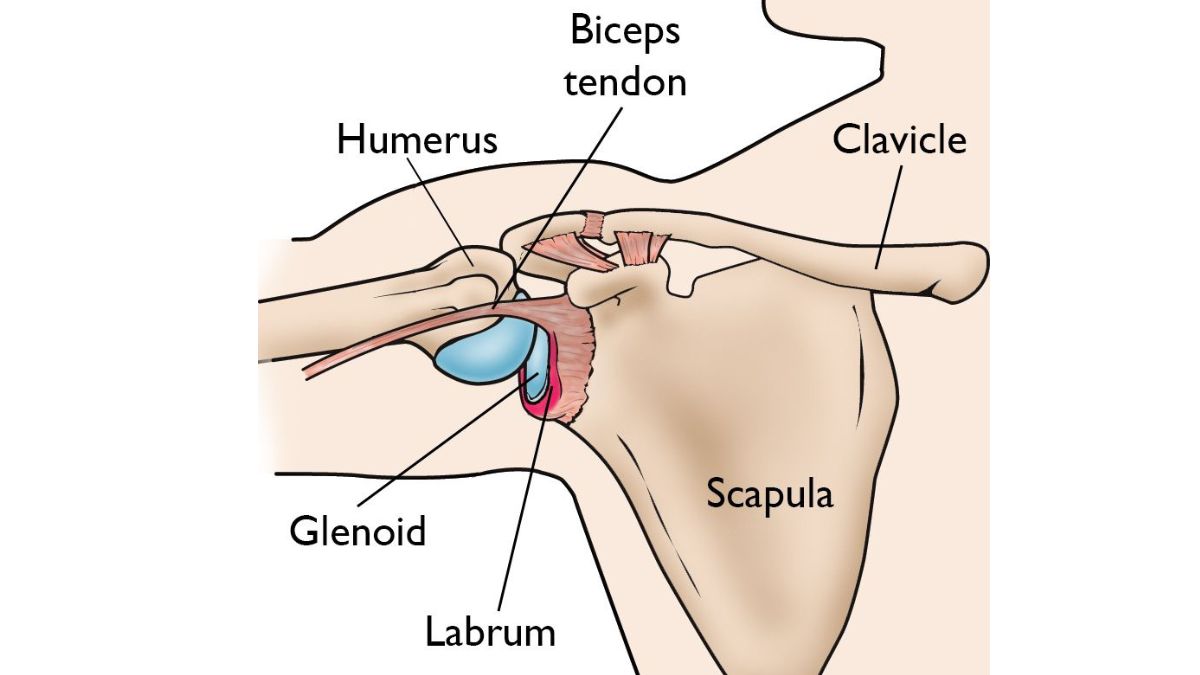HEALTH
How Caregivers Enrich the Lives of the Elderly

The Role of Caregivers in Supporting Independence
As people age, their desire to maintain their independence becomes crucial to their well-being. This autonomy involves completing daily tasks and upholding dignity and self-worth. Caregivers are vital in offering support and enabling seniors to live on their own terms. By providing home care in Fort Mitchell, Kentucky, caregivers help elders remain in familiar environments brimming with memories and comfort. This setup bridges the gap between independent living and the support circle offered by caregivers, infusing a sense of empowerment into the lives of aging individuals.
Consider the story of an elderly couple who, with caregiver assistance, continue to enjoy the freedom to engage in daily activities like gardening or strolls in their neighborhood. Caregivers assist with rigorous tasks such as meal preparation, housekeeping, and managing medications, allowing seniors to focus on life’s pleasures. This fosters a sense of independence and relieves family members, who take comfort in knowing their loved ones are supported and self-reliant.
The Emotional and Social Benefits of Caregiving
The golden years often bring challenges such as loneliness and isolation, which can profoundly affect a senior’s well-being. Caregivers provide essential companionship that helps combat these feelings, offering more than just a helping hand. Their presence brings comfort through conversation, shared activities, and daily interactions. A study by the National Institute on Aging underscores the importance of social relationships, showing they are crucial for reducing risks of depression, improving cognitive health, and even boosting immune response.
Beyond basic care, caregivers act as conduits to community engagement. Through park visits, group activities, or simply sharing a meal, they create valuable social interactions that remind seniors of the vibrant communities they belong to. These interactions build friendships and foster a sense of belonging, crucial for mental and emotional health.
Personalized Care for Unique Health Needs
Every individual’s health journey is a tapestry of unique needs and circumstances, necessitating personalized care strategies from caregivers. These professionals bring specialized skills to address various medical conditions, providing care plans uniquely tailored to each senior’s situation. For instance, a caregiver might focus on mobility exercises for a senior with arthritis while managing the dietary considerations for another senior with diabetes.
Moreover, caregivers equip families with resources and knowledge to better understand and manage health conditions, ensuring that care extends beyond the immediate assistance they provide. This comprehensive approach leads to improved physical health and enhanced emotional well-being as seniors thrive within the comfort of personalized, attentive care.
Providing Peace of Mind for Families
The presence of a professional caregiver provides immense peace of mind to families navigating the emotional and logistical complexities of elder care. It is not unusual for family members to feel concerned regarding the health and safety of their elderly relatives, particularly when they are also managing other responsibilities such as employment or child-rearing. Caregivers alleviate these concerns by acting as the family’s eyes and ears, directly attending to daily needs and unforeseen issues.
Trust is fundamental in these relationships. Open and transparent communication ensures families remain informed about significant developments and care decisions. Consistent updates, meetings, and consultations align caregiver services with families’ expectations and seniors’ needs, promoting a collaborative atmosphere founded on trust and mutual respect.
Cost-Effective Long-Term Care Solutions
Cost considerations are paramount when evaluating long-term care options. In-home care is an attractive alternative to institutional care, offering a personalized and economical approach that avoids the high costs associated with nursing home facilities. This solution allows seniors to retain autonomy while receiving the care required within many families’ budgetary constraints.
Caregivers also enhance fiscal responsibility through their management of household tasks. Caregivers play a key role in supporting families’ financial peace of mind by helping manage grocery budgets or ensure timely bill payments. The savings realized through efficient home-based care empower families to allocate resources towards enhancing their loved one’s quality of life.
The Global Impact of Caregiving on Society
The rise of an aging population challenges societies worldwide, presenting obstacles and opportunities in caregiving. Caregivers are key players in navigating this shift, offering services significantly impacting economic structures and family dynamics. Their role is more critical than ever in reducing the burden on healthcare systems and supporting a work-life balance for families.
Furthermore, the demand for caregiver support has far-reaching benefits that extend to the macroeconomic level. The economy benefits from reduced medical costs and increased workforce participation, as family members can pursue careers knowing their loved ones are in capable hands. A report on the importance of caregiver support highlights these broad advantages, underscoring the essential role caregivers play in fostering more substantial, more resilient communities.
Tackling Challenges in the Caregiving Field
While deeply rewarding, the caregiving profession is accompanied by its challenges. Caregivers often encounter emotional and physical fatigue as they juggle the demands of their roles. To sustain their ability to provide high-quality care, caregivers must focus on their well-being through self-care and support networks.
Engaging in self-care routines, such as regular exercise, mindfulness practices, and taking well-deserved breaks, ensures caregivers can maintain their health and passion for their work. Access to resources such as caregiver support programs is invaluable, providing the guidance and encouragement necessary for caregivers to balance their roles effectively and sustainably.
Innovations in Caregiving Technology
Innovative technology is revolutionizing the caregiving arena, providing tools that enhance efficiency and effectiveness in caring for seniors. Technology is reshaping how care is delivered, from wearable health monitors that track vital signs to applications that assist with medication management.
Consider remote monitoring systems that alert caregivers and family members to significant changes in a senior’s health, facilitating prompt and appropriate responses. Technological advancements in caregiving hold considerable promise, offering the potential to augment the quality and accessibility of care for seniors globally.
HEALTH
What Is a SLAP Tear? Understanding This Common Shoulder Injury

If you’ve been experiencing shoulder pain, clicking, or a loss of strength—especially during overhead movements—you may be dealing with more than just a strain. One possible culprit is a SLAP tear, a specific type of injury to the shoulder joint that can affect everyone from athletes to weekend warriors.
What Does “SLAP Tear” Mean?
SLAP stands for Superior Labrum Anterior and Posterior. In simpler terms, it’s a tear in the top part of the labrum—the ring of cartilage that surrounds the socket of your shoulder joint. This cartilage helps stabilize your shoulder and keep the ball of your upper arm bone in place. When torn, the result can be instability, discomfort, and reduced mobility.
How Does a SLAP Tear Happen?
SLAP tears can result from either acute trauma or repetitive motion. Some of the most common causes include:
- Falling on an outstretched arm
- Lifting heavy objects or weights with poor form
- Repetitive overhead movements (common in baseball, swimming, tennis, etc.)
- Sudden pulling motions (like grabbing something while falling)
In some cases, SLAP tears can also be part of the natural wear-and-tear process, especially in people over 40.
Common Symptoms of a SLAP Tear
Not all SLAP tears feel the same, but here are some symptoms to watch for:
- Deep shoulder pain, especially during overhead activity
- A clicking or popping sensation
- Weakness or fatigue in the shoulder
- Limited range of motion
- A feeling that your shoulder is going to “slip out”
These symptoms often mimic other shoulder conditions, which is why getting an accurate diagnosis is so important.
Diagnosing a SLAP Tear
A shoulder specialist will typically begin with a physical exam and a review of your activity history. Imaging tests like an MRI can help confirm the diagnosis, though in some cases, an arthroscopic procedure may be necessary to fully visualize the tear.
For a deeper dive into how SLAP tears are diagnosed and treated, visit: https://levelupshoulder.com/slap-tears/
Treatment Options
Treatment depends on the severity of the tear and your activity level. In mild cases, rest, anti-inflammatory medications, and physical therapy may be enough to restore function. For more serious tears—especially in younger or highly active individuals—arthroscopic surgery may be recommended to repair the torn labrum.
Post-surgery, a rehabilitation program will help restore range of motion, rebuild strength, and reduce the risk of reinjury.
Don’t Ignore Shoulder Pain
A SLAP tear can seriously impact your ability to perform daily tasks and enjoy physical activity. If you’re experiencing persistent shoulder pain, especially with overhead movements, it’s worth getting it checked out. Early treatment leads to better outcomes and a quicker return to the things you love.
HEALTH
What Is Orthopedic Medicine? An Intro to Bone and Joint Health

From sore knees after a weekend hike to a torn rotator cuff that just won’t heal, many of us deal with bone, joint, or muscle pain at some point in our lives. That’s where orthopedic medicine comes in. But what exactly does it cover—and when should you see an orthopedic specialist?
Whether you’re an athlete, a weekend warrior, or simply want to stay mobile and pain-free as you age, understanding the basics of orthopedic care can help you make better decisions about your health.
What Is Orthopedic Medicine?
Orthopedic medicine is a branch of medicine focused on the musculoskeletal system, which includes your bones, joints, ligaments, tendons, muscles, and nerves. The goal is to diagnose, treat, and prevent injuries and disorders that affect movement, stability, and function.
Orthopedic specialists, also known as orthopedists or orthopedic surgeons, are trained to handle everything from acute injuries (like fractures and dislocations) to chronic conditions such as arthritis, tendonitis, and degenerative joint disease.
What Conditions Do Orthopedic Doctors Treat?
Orthopedic medicine covers a wide range of conditions affecting different areas of the body, including:
- Shoulder injuries: rotator cuff tears, labral tears, impingement
- Knee issues: ACL tears, meniscus injuries, runner’s knee, arthritis
- Spine problems: herniated discs, sciatica, scoliosis
- Hip pain: bursitis, labral tears, osteoarthritis
- Hand and wrist: carpal tunnel syndrome, fractures, tendonitis
- Foot and ankle: plantar fasciitis, sprains, Achilles tendon injuries
Many of these conditions can be treated with non-surgical methods, though surgery may be necessary in more severe cases.
Types of Orthopedic Care
Orthopedic care includes both surgical and non-surgical options, depending on the injury or condition. Treatment approaches may involve:
- Physical therapy and rehabilitation
- Injections (such as cortisone or PRP) to reduce inflammation and pain
- Bracing or casting for stability and healing
- Minimally invasive surgery, like arthroscopy
- Joint replacement surgery, typically for hips, knees, or shoulders
For example, orthopedic treatments by Level Up Shoulder, Dr. Drake focus not only on surgical repair of shoulder injuries, but also on functional rehab, strength restoration, and getting patients back to the activities they love—faster and stronger.
When Should You See an Orthopedic Doctor?
If you’re experiencing any of the following, it may be time to schedule a consultation:
- Persistent joint or muscle pain
- Swelling or stiffness that doesn’t improve with rest
- Limited range of motion in a joint
- Weakness or instability
- An injury that isn’t healing properly
- Pain that interferes with your daily life or sleep
Early intervention can prevent long-term damage and get you back to full strength sooner.
Conclusion
Orthopedic medicine plays a vital role in keeping your body moving the way it should. Whether you’ve suffered a sports injury or are dealing with years of wear and tear, orthopedic specialists are trained to help you regain mobility, reduce pain, and improve your quality of life.
From preventive care to advanced surgical procedures, orthopedic treatments are designed to keep your bones and joints working better, for longer.
HEALTH
Raising Healthy Smiles: The Essentials of Pediatric Dental Care

What Is Pediatric Dentistry?
In addition to providing dental care, pediatric dentistry promotes good oral hygiene from an early age. Unlike general dentistry, pediatric dentists focus on young patients’ unique challenges and considerations. Their specific training prepares them to prevent and treat oral health problems in newborns, kids, and teenagers. Facilities like a Pediatric Dentist in Thornton provide environments specifically designed for children, helping ease anxiety and making dental visits enjoyable experiences. A pediatric facility’s vibrant and entertaining surroundings can significantly influence a child’s desire to get dental care.
The Importance of Early Dental Visits
Starting dental visits early is an investment in lifelong oral health. These initial visits, as recommended by the American Academy of Pediatric Dentistry, set the stage for understanding the importance of dental care. These are crucial periods when dentists can introduce children to oral hygiene and the significance of caring for their teeth. By capturing a child’s interest and removing any fear associated with dental visits, these experiences contribute to effectively monitoring and guiding the development of both baby and permanent teeth.
Understanding Common Pediatric Dental Issues
Children’s dental problems, including cavities and gum disease, are sometimes written off as trivial, but if ignored, they can cause serious health problems. Children are prone to cavities due to the sugary foods they consume and their sometimes irregular brushing habits. In addition, behaviors like thumb-sucking and extended use of pacifiers can affect tooth alignment and jaw development. By attending regular dental visits, parents can gain insights from dental professionals on mitigating these risks and ensuring early intervention. A more secure oral future can result from early detection of these disorders, which can stop them from developing into more serious tooth health difficulties.
Tips for Promoting Healthy Dental Habits
Creating a routine around dental care can help instill lifelong habits in children. They must be taught to use fluoride toothpaste and clean their teeth twice daily. Flossing should also be incorporated once teeth begin to touch. These habits need reinforcement at home to foster a sense of accountability in children. Parents can use visual aids or reward systems as positive reinforcements. Demonstrating proper techniques adds value, as children are likely to imitate the actions they observe. Good oral hygiene should be framed positively as an empowering practice rather than a chore.
Nutrition’s Role in Oral Health
A balanced diet is a pillar of strong oral health. Foods containing essential minerals, particularly calcium and phosphorus, are crucial in maintaining healthy enamel and oral well-being. Nuts, leafy greens, and dairy products can all significantly improve tooth health when consumed regularly. It’s also critical to restrict the consumption of acidic drinks and sugary foods that cause cavities. The resource on WebMD highlights the importance of a balanced diet in protecting your child’s teeth. Making informed choices about diet is an impactful way for parents to exercise control over their child’s oral health outside of the dental office.
How to Choose the Right Pediatric Dentist
Choosing a pediatric dentist shouldn’t be rushed. It’s a decision that can influence a child’s view of dental care. A pediatric dentist’s ability to communicate effectively with children and a friendly, inviting office atmosphere can make visits less intimidating. You could feel more at ease reading online reviews or asking friends for recommendations. The right dentist will engage with children in a way that builds trust and encourages enthusiasm for dental care. Parents are encouraged to visit potential dental practices to assess the environment and ensure it aligns with their child’s comfort levels and needs.
Setting Up a Child-Friendly Dental Routine
Making dental hygiene a habitual, positive practice begins with creativity. Utilizing tools such as songs, colorful toothbrushes, or even digital apps tracking brushing time can turn routine into fun. Allowing your child to pick out their dental supplies can also foster a sense of ownership over their oral hygiene. Establishing a routine, like brushing after breakfast and before bed, helps to weave dental care seamlessly into daily life. Consistency is key, and positive reinforcement can encourage a child to see these activities as enjoyable and rewarding.
Navigating Dental Anxiety in Children
Dental anxiety can significantly impact a child’s willingness to receive care, but it can be managed successfully. Introducing your child to the dental office gradually and supportively can alleviate fear. Explaining dental procedures using child-friendly language and offering reassurance can demystify the experience. Techniques such as deep breathing exercises or storytelling can divert attention, making visiting less daunting. Creating a supportive environment at home and during dental visits cultivates a positive attitude toward long-term dental wellness.
-

 BLOG1 year ago
BLOG1 year agoATFBooru: A Hub for Animated Art and Community
-

 CONSTRUCTION1 year ago
CONSTRUCTION1 year agoBuilding a Home Gym in Your Basement (7 Key Renovation Tips)
-

 BLOG1 year ago
BLOG1 year agoFictionmania: A Deep Dive into the World of Transformative Stories
-

 GAMES1 year ago
GAMES1 year agoSnow Rider 3D: Unblocked Tips and Tricks for Gamers
-

 LIFESTYLE1 year ago
LIFESTYLE1 year agoVersatile Living: Stylish Indoor Outdoor Rugs with Eco-Friendly Appeal
-

 BLOG1 year ago
BLOG1 year agoGIFHQ: A Comprehensive Guide
-

 BLOG1 year ago
BLOG1 year agoVincent herbert new wife: A Detailed Overview
-

 LIFESTYLE1 year ago
LIFESTYLE1 year agoAchieve Elegance with Chic Blue Formal Dresses and Redken Professional Hair Care for All Hair Types
